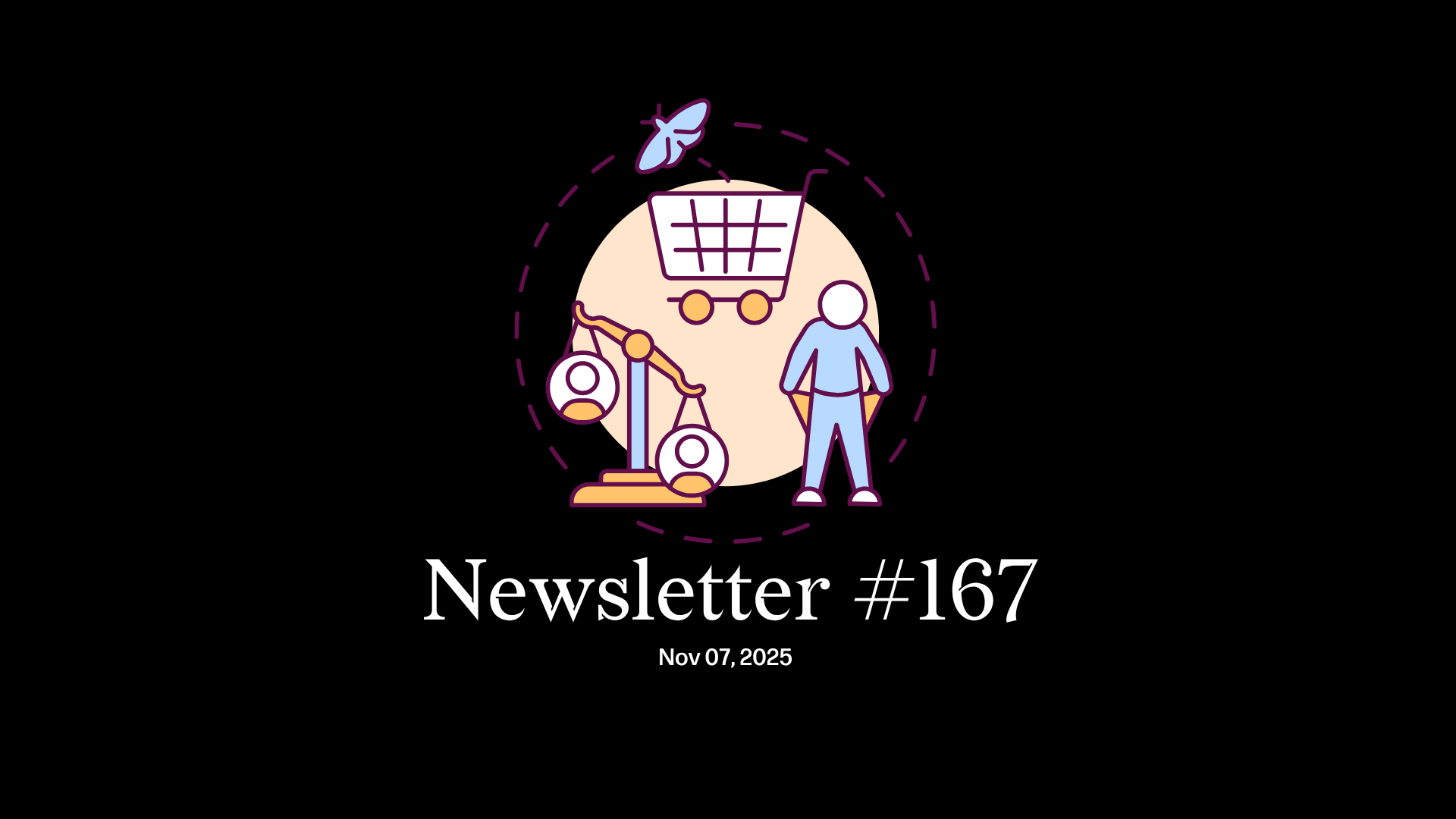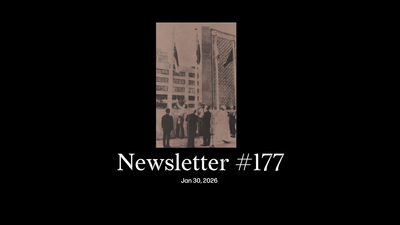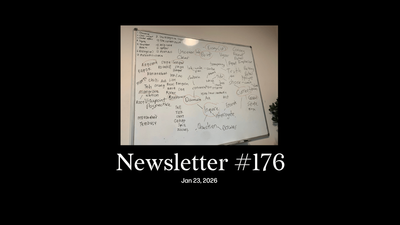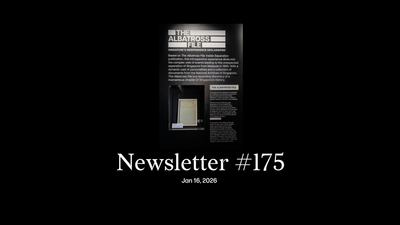Dear reader,
Today we’ve published:
- “Singapore This Week” by Jom
- “Everyday Economics: What my mother taught me about mental accounting” by Serene Koh
Zohran Mamdani! Gosh, I think I’m getting tired of seeing him on my feed, attractive and charming as he is. Still, it’s arguably one of the greatest triumphs of Bernie’s socialist revolution. What does it mean for Singapore? Well, working class folk dismayed by spiralling costs in a global city revolted against establishment parties, attracted to a neophyte with a natural flair for social media. Food for thought, especially for those who think the WP is too much of a PAP-lite. “Other parties” everywhere might be encouraged by Zohran.
This week, Singaporeans have again been talking about Lee Kuan Yew’s house at 38 Oxley Road, after the government said it intends to gazette the site. We’re hoping to put out a commentary on this next week.
Other stuff that caught our eye but didn’t make it into our weekly: the ongoing inquisition into the horrific death of toddler Megan Khung; ACS alumni upset with ST’s decision to flag their school, but no others, as associated with scammers; there’s finally a US ambassador to Singapore in place, Trump buddy, Anjani Sinha; and Parliament passing an Online Safety bill after eight hours of debate.
- How much should the Noor Deros saga worry the Workers’ Party?
- The worrying treatment of workers at Twelve Cupcakes
- What are the many ways we can keep our youth from crime?
- Why Singapore’s “30 by 30” plan unravelled so quickly
- The meaning of the songket in a portrait of Frank Swettenham, colonial ruler
- Iskandar Jalil, and Singaporeans’ newfound enthusiasm for pottery
- The young Singaporeans minting money by making and selling stickers
Print issue No. 3. It’s now on sale, but more importantly, our sincere apologies to Xingyun Shen for missing out her bio in our contributor page. These are the mistakes that bother us the most.
Join the over 2,000 paying members now to get access to all our content, starting from just S$10 a month.
Improved login system. Some of you have complained about our e-mail login system, which requires you to click on a link sent to your inbox. From this week we’ve enhanced it. You’ll now also be sent a six-digit passcode, as is increasingly common across platforms. So while you’ll still have to check your e-mail, there will now be two options on the same mail: click on a link; or enter the passcode.
Column. “Everyday Economics: What my mother taught me about mental accounting” by Serene Koh
I’m chuffed to introduce Jom’s first-ever columnist: Serene Koh, a behavioural scientist and director of the Behavioural Insights Team—aka the UK’s “nudge unit”—in Singapore. We'll be keeping this outside the paywall for the foreseeable future, so all of you can read Serene's work.
For years I’ve enjoyed the writing of people like Tim Harford (in the FT) and Steven Levitt (of Freakonomics fame), and have thought that our journalistic scene would benefit from something similar. (No pressure, Serene.)
It’s partly because many of our civil servants are steeped in behavioural science, which influences policy design. Consider certain traffic warning letters sent by the Singapore Police: we could have fined you, but we’re letting you go this time. Serene’s humorous behavioural deconstruction of such letters on LinkedIn is what first made me think of her for this new column—one that many of you said you wanted, in our recent reader survey.
Serene also teaches behavioural science at NUS, and I love that she relies on her mother’s behaviours as a device for her first column, one which touches on the ERP system, and our use of CDC vouchers, among other things. She opens:
“As part of my job, I do a fair amount of teaching and lecturing. And as anyone who has heard me speak can attest, I talk about my mother a lot.
To me, Mom is the quintessential bundle of human ‘biases’ and apparent irrationalities, which for a behavioural scientist, is gold.
For instance, my mother is scrupulous when it comes to saving water—she reminds us all the time not to take showers that are too long, to turn off the faucet while soaping our hands, and to water the plants with a watering can because a hose would be too wasteful.
And yet when it comes to washing vegetables, no amount of water is too much. Basin after basin of water is used to soak all her vegetables before cooking, and rinsing bunches of spinach under water running on full blast is perfectly acceptable.
From a physics standpoint, this distinction makes no sense—a litre of water is a litre of water regardless of how you use it. But mentally, my mother clearly has separate ‘accounts’ for water, each with its own set of rules.”
How does mental accounting affect the way we each save and spend? Read on. And thanks to Lauren Cheung for our first column’s illustration—depicting a form of kopitiam decision-making familiar to many of us.
Jom belajar,
Sudhir Vadaketh, editor-in-chief
Jom
If you’ve enjoyed our newsletters, please scroll to the bottom of this page to sign up to receive them direct in your inbox.







